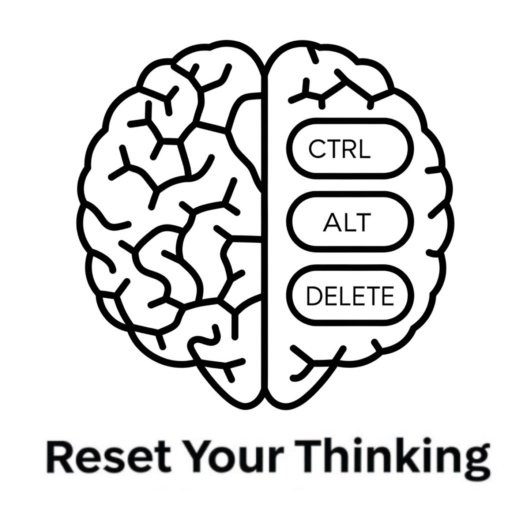McKinsey & Company’s pervasive influence, its questionable ethical practices, and the significant, often detrimental, impact of its recommendations across various sectors globally.
Key Themes and Important Ideas:
1. Pervasive Global Influence and Reach:
- Ubiquitous Presence: McKinsey’s influence extends far beyond the corporate world, permeating government agencies, defense organizations, and even intelligence communities worldwide. The text states that “governments around the world hired its consultants, as did the CIA, the FBI, and the Pentagon, among others, believing McKinsey had the wisdom and wherewithal that their managers lacked.”
- Diverse Clientele: McKinsey advises a vast array of clients, from “U.S. Steel” aiming to restore its “iconic status” to nations hiring them to “advise sovereign wealth funds worth more than $1 trillion.” This diverse portfolio includes military, police, and justice ministries, as well as state-owned enterprises (SOEs) in China, such as “China Mobile, China Telecom, and the oil giants Sinopec and PetroChina.”
- Historical and Enduring Impact: McKinsey has been a fixture in major economic and political shifts, including the nationalization and subsequent privatization of “British Steel.” Their widespread presence led the London correspondent for Science to quip, “If God were to remake the world, he would call upon McKinsey for assistance.”
2. Ethical Ambiguity and Conflicts of Interest:
- Working with Harmful Industries: The document highlights McKinsey’s deep involvement with industries known for harmful products, particularly tobacco and vaping. The firm could not “resist the lure of cigarettes” due to their “mountains of cash” and addictive nature, as described by Warren Buffett: “It costs a penny to make. Sell it for a dollar. It’s addictive. And there’s fantastic brand loyalty.” McKinsey even conducted research for Philip Morris in 1956, seeking to “find out exactly what the smoker consciously or unconsciously may want that we can provide to him,” implicitly contributing to understanding nicotine addiction.
- Role in the Opioid Crisis: McKinsey advised Purdue Pharma on increasing OxyContin sales, even recommending strategies like “overdose rebates,” where they proposed “paying pharmacies rebates for every OxyContin overdose that patients suffered.” This demonstrates a disturbing disregard for public health in pursuit of profit.
- Simultaneous Representation of Clients and Regulators: A recurring ethical concern is McKinsey’s practice of advising both companies and the regulatory bodies overseeing them. For example, they consulted for the “Food and Drug Administration (FDA)” while also working with pharmaceutical clients, raising “conflicts of interest.”
- Authoritarian Regimes and Human Rights Concerns: McKinsey’s work with authoritarian governments like Saudi Arabia and China is heavily scrutinized. In Saudi Arabia, they advised the government on an “austerity report” that analyzed “the online conversations of Saudi citizens,” effectively identifying and targeting dissidents. One analyst even faced a hypothetical question about dissolving dissidents in acid, leading to a lawsuit claiming “McKinsey effectively put a target on Plaintiff’s back.” The firm also maintained “lucrative alliances” with “state-owned firms” in China, despite the detention of “Muslim Uyghurs.” They also had “top clients” in Russia, including sanctioned entities like “VTB Bank” and “Gazprom.”
3. Questionable Efficacy and Accountability:
- Vague Deliverables and High Costs: Illinois officials questioned McKinsey’s value, with one representative asking, “Do we have a cadence defined?…I’m just going through these, just wondering what we have gotten for the million dollars.” This highlights concerns about the tangible benefits derived from their expensive contracts.
- Complicity in Corruption: In South Africa, McKinsey was implicated in “state capture” scandals, working with entities like “Regiments Capital” which obtained “contract specifications in advance” and received “confidential information” on evaluation processes, leading to money laundering.
- Failures and Negative Consequences of Recommendations:U.S. Steel: Despite McKinsey’s help to restore U.S. Steel, the outcome was “not good,” leading to job cuts and a significant decline, illustrating that McKinsey’s advice does not guarantee success.
- Financial Deregulation (Securitization): McKinsey played a significant role in promoting “securitization of credit,” with their book “Securitization of Credit” giving the “idea and the product and industry a lot of credibility.” This practice, while initially seen as making “the world a better place,” contributed to the “financial crisis of 2008,” as “many of those new loans would turn sour.”
- Healthcare Privatization (NHS, UK): McKinsey actively pushed for “market forces” and “private companies to buy NHS hospitals” in Britain, contributing to a “massive reorganization” of the public health service, which was met with significant public and professional opposition.
- Dehumanization of Companies: Citibank’s reorganization under McKinsey led to a system that “dehumanized the company,” eroding employee assurance and potentially fostering internal competition through “aggressive earnings-growth targets.”
4. The Business Model and Internal Culture:
- Profit-Driven Ethos: McKinsey’s core philosophy emphasizes “value creation to fees—typically at least 10 times,” highlighting a strong focus on maximizing financial returns for itself and its clients. This profit motive can seemingly override ethical considerations, particularly in industries like tobacco where “the profits were too addictive.”
- Secrecy and Confidentiality: The firm operates with a high degree of secrecy, “vigorously protect[ing] client confidentiality” and often using “nondisclosure agreements.” This lack of transparency makes it difficult to scrutinize their work and its broader societal impact.
- “Up-or-Out” Culture and Consultant Burnout: The firm’s internal “up-or-out” policy creates intense pressure on consultants, sometimes leading to ethical compromises. The concept of being “on the beach” (unassigned) can incentivize consultants to take on questionable projects to remain employed.
- The “War for Talent”: McKinsey emphasizes attracting and retaining “talent,” believing that “data provide compelling evidence” that talent drives value. This focus can lead to a highly competitive and demanding internal environment.
In conclusion, the provided excerpts paint a picture of McKinsey & Company as an incredibly influential and pervasive consulting firm with a global reach across both private and public sectors. While ostensibly offering expertise to improve efficiency and profitability, its history is marred by ethically questionable engagements with harmful industries and authoritarian regimes, a pattern of prioritizing profit over public good, and a lack of accountability for the negative consequences of its recommendations. The firm’s secretive nature further complicates efforts to fully understand its impact.
RYT Podcast is a passion product of Tyler Smith, an EOS® Implementer (more at IssueSolving.com). All Podcasts are derivative works created by AI from publicly available sources. Copyright 2025 All Rights Reserved.

